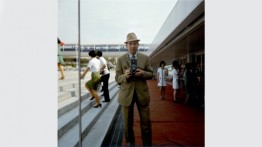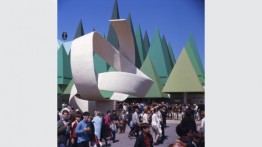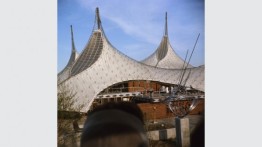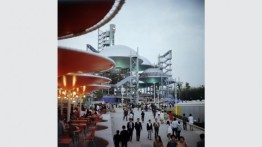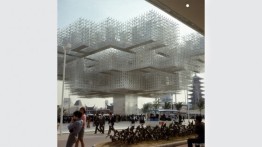Stanley Prowler Travel Photos
This collection consists of over 6,000 transparencies taken by the late architect Stanley Prowler. For over five decades, from the 1940s through the 1990s, Prowler traveled extensively in the U.S. and abroad documenting architecture in Brazil, Portugal, France, Britain, Greece, Israel, India, Japan, Argentina, and several other countries, including a trip to China just months after it was opened to American travelers. Using medium format and 35mm cameras with an architect’s eye, Prowler captured the essence of the built environment and people of a particular time and place. After each trip he held gatherings at his apartment where he presented his photographs on a large projection screen he had permanently mounted beneath his living room window soffit. The images were always accompanied by insightful observations, engrossing stories, and fascinating details about the people and places he had encountered. Following his death, Prowler’s collection of travel photographs was bequeathed to The International Center, where he served as a board member. The organization subsequently donated the collection to the Architecture Archive in 2006.
Online exhibitions of images from this collection include Prowler’s photographs of Expo ‘67 in Montreal and Expo ’70 in Osaka.

